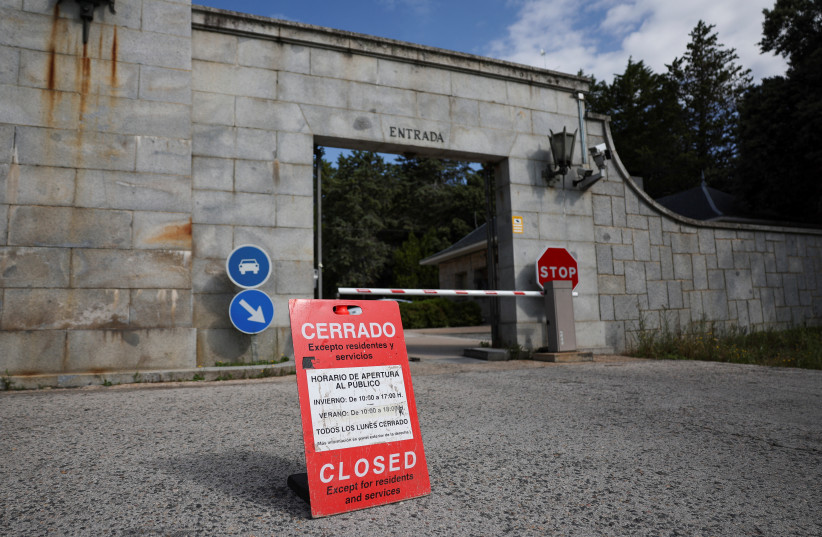Forensic scientists have begun exhuming the bodies of 128 victims of the Spanish Civil War from the former mausoleum of General Francisco Franco near Madrid, the government said on Monday.
The exhumation, which is being carried out as an election campaign heats up, is the first involving people whose bodies were moved from other parts of Spain after the 1936-1939 war and reburied without their families' consent in a monument built by Franco in the Valley of Cuelgamuros, formerly known as Valley of the Fallen.
It is likely to make Franco's four-decade dictatorship, which still divides Spanish society, a topic of passionate discussion as Socialist Prime Minister Pedro Sanchez seeks reelection.
The remains of some 34,000 people, many of them victim of Franco's regime, are buried anonymously in the crypt of the basilica carved into a mountainside northwest of Madrid. Relatives have been fighting for years to give their loved ones a burial under their own names and near their families.
"Spanish democracy is finally providing answers for these victims," government spokesperson Isabel Rodriguez said on state-owned TV station 24H.

Passing a law that makes it possible for relatives to identify victims who are buried in about 2,400 unmarked mass graves around Spain was one of the first policies implemented by Sanchez when he came to power in 2018.
'Law on Democratic Memory'
The rival conservative People's Party has opposed the so-called "Law on Democratic Memory" and vowed to repeal it if wins power in the July 23 vote.
The process of identifying the remains could take weeks or months, meaning the results will probably be published after the election.
The remains of Jose Antonio Primo de Rivera, founder of Spain's fascist Falange movement that supported the Franco regime, were dug up and removed from the mausoleum in April.
That followed the exhumation of Franco's body in 2019 as part of a plan to convert the complex, which includes 150-meter-high cross and became a site of pilgrimage for his supporters, into a memorial to the 500,000 people killed during the civil war.
The Association for the Reparation of Historic Memory, an NGO representing victims of Franco, said on Twitter that while Franco's family was able to carry out his coffin on their shoulders, the families of his victims had to find out through the media that their relatives were being exhumed.
Spain transitioned to democracy following Franco's death in 1975.
